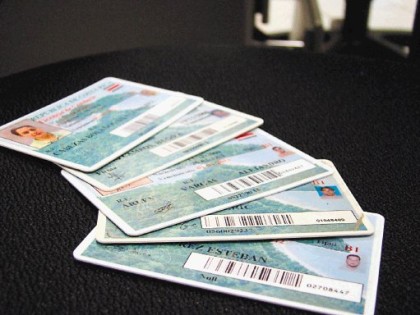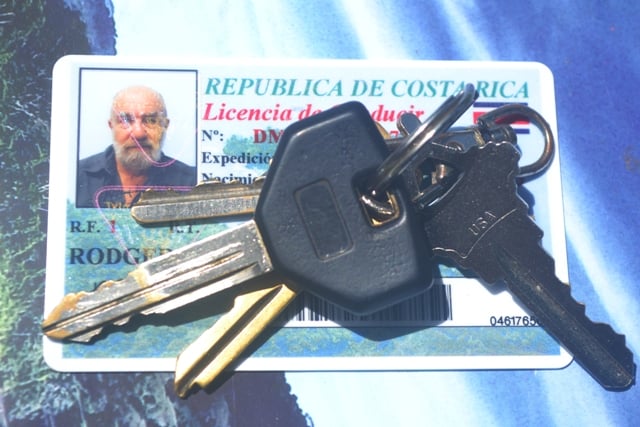Costa Rica News – Talk to any expat from any country living out here in Costa Rica, and you’re unlikely to hear anyone say what an easy, relaxing time they had dealing with immigration.
There are a lot of reasons why you might want to pack up your things and make the move here, but immigration authorities feel like they can’t just go handing out cédulas to everyone who asks politely. Thus, they like to take their time (average: one year) in  making their decisions, leaving those who have applied in a dark space somewhere between limbo and purgatory. The law, as it stands, is quite clear in that while a person’s application is en trámite or pending, they do not need to leave the country every 90 days as they would were they still registered as a tourist; they may remain in the country until they receive notification that they have been either granted or denied a cédula.
making their decisions, leaving those who have applied in a dark space somewhere between limbo and purgatory. The law, as it stands, is quite clear in that while a person’s application is en trámite or pending, they do not need to leave the country every 90 days as they would were they still registered as a tourist; they may remain in the country until they receive notification that they have been either granted or denied a cédula.
The main difficulty, however, arises when we take driving licenses into consideration. Section 91a of the Transit Law states that drivers with a foreign driving license who are currently in the country as a tourist, are authorized to drive for a period of three months, which for travellers coming to Costa Rica for tourism purposes is adequate. Drivers who have been in the country continuously for longer than 3 months, however, are not permitted to drive with their foreign license, and must instead obtain a Costa Rican driving license. In order to do so, they must comply with the following requirements:
- The foreign driving license must be valid.
- Comply with the general requirements for obtaining a driving license, except for the written and driving test.
- To demonstrate their legal status in the Country according to the Immigration Law.
Rafael Valverde, Managing Attorney for Outlier Legal Services, Escazú, says that within these requirements, “there is a disconnect between the language of the law and the intention of the legislator…creating an unnecessary requirement which in some occasions is impossible to comply with.” Here, he is speaking with regard to the stipulation that drivers must remain continuously in the country for more than three months. Granted, the following is not the norm, but he supports his query about the law with the example of people who have already attained their approved residency, but who for work or travel-related reasons, do not spend such a long time in the country at once, meaning they are unable to validate their foreign driving licenses.
To listen to Rafael speak about this on This Week in Costa Rica click here.
That said, it is point iii) of the law (a need to demonstrate legal status according to the Immigration Law) which causes most concern to Valverde, to the extent that he has set up a petition with Change.org so that the situation might be remedied. He claims there this is some disparity between the wording of the law and COSEVI’s interpretation of it – something which is not within their duty to do anyway. “The authority to interpret the law resides in the Judicial system, and not in the Executive Branch”, insists Valverde. The main question posed is: when the law does not state that full residency is required for validation of a driving license, why is COSEVI interpreting it as such? If it was necessary for drivers wishing to validate a foreign driving license to hold residency, then arguably the law should include some variation on “resident” or “cédula” or a confirmed status from DIMEX. As it currently reads, it suggests that anyone fulfilling the remaining requirements and not holding the status “tourist” is reasonably qualified to have their driving license validated.
It seems to be that this narrow interpretation of the law is fairly recent, with Valverde’s company noticing a significant change in attitude from COSEVI between the months of January and April this year, culminating in news from the road traffic organisation that “now, it was required to have residency”.
This, unsurprisingly, puts those waiting to hear if they have been granted residency in an awkward situation. When their initial three months come to an end, so too does their ability to legally drive in Costa Rica under their foreign driving license. With these laws in place and the current interpretation of them, the only legal choice left to them is to leave the country every 90 days to reinstate their tourist visa and thereby granting them a further 90 days’ use of that driving license. This goes directly against the lift of the usual 90-day limit, due to their pending status, and forces them to leave the country so that they may continue driving until the Immigration authorities see fit to update them on their status. COSEVI themselves do not release statistics on the number of driving licenses they validate per year, but with a total of 23,439 residency applications approved in 2013 and such a lengthy processing period, Valverde is certain that several thousands of people must be affected by COSEVI’s interpretation of the law. It is believed that once the cédula has come in, validation of a foreign driving license should be fairly straightforward, but this still does not account for the thousands of people living in Costa Rica who are either unable to drive, or who must make costly and inconvenient trips to Nicaragua or Panama every 3 months in order to stay on the right side of a law which could be so much simpler.
Valverde hopes for a total of 10,000 petition signatures as a demonstration to the Director of COSEVI of the number of foreign nationals disillusioned with how the law affects them. If you’re interested in being a part of this movement, the petition can be found here.
By Leah Hendre

